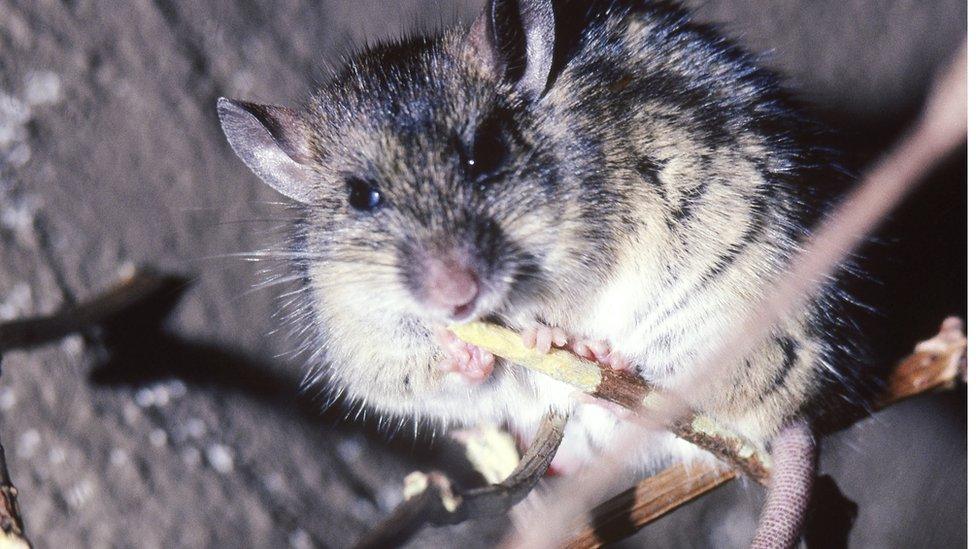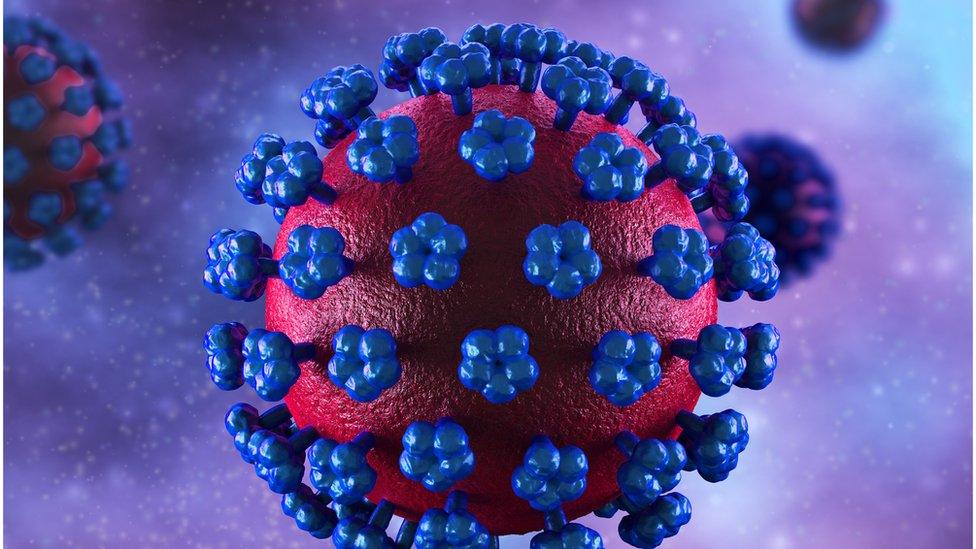Spread of human disease from animals mapped
- Published

Rats spread a variety of diseases, including Lassa fever
Scientists say they have developed a better way to predict how animal diseases can spill over into humans.
Their model for Lassa fever, which is spread by rats, predicts that there will be twice as many human cases of the disease in Africa by 2070.
The method can be applied to other disease threats such as Ebola and Zika, they say.
Like the Ebola virus, the Lassa virus causes haemorrhagic fever and can be fatal.
Lassa fever virus currently affects between 100,000 and one million people a year in western sub-Saharan Africa.
A rat found in parts of the continent can pass the virus to people.
Scientists led by Prof Kate Jones of the Centre for Biodiversity and Environment Research at UCL looked at about 400 known outbreaks of Lassa fever between 1967 and 2012.

Lassa fever
Lassa virus is carried by the Mastomys rat, which is found in parts of Africa.
The virus is passed to people through direct contact with infected rats by catching and preparing them for food, or by food or household items contaminated with rat droppings or urine.
The virus can also be transmitted through contact with body fluids of an infected person.
Around 80% of people with Lassa virus have no symptoms or have symptoms that mimic other illnesses, such as malaria.
Symptoms include fever, fatigue, nausea, vomiting, diarrhoea, headaches, abdominal pains, sore throat and facial swelling.
Source: World Health Organization

They developed a model to calculate how often people are likely to come into contact with disease-carrying animals and the risk of the virus spilling over.
It shows more areas of West Africa are at risk from Lassa fever spill-over events than previously thought.
Disease outbreaks
"Our model suggests that in future, it is likely to become a greater burden on local communities spreading to more areas with approximately twice as many spill-over events predicted by 2070," Dr Jones and colleagues from the University of Cambridge and the Zoological Society London report in the journal, Methods in Ecology and Evolution, external.
The method takes into account environmental change and the way human populations are expected to grow.
The projected increase in cases is largely due to climate change, with the rat that passes it to people (M. natalensis) thriving in hot and wet conditions, they say.
Meanwhile, growth in human populations in certain areas will mean more people coming into contact with the rodent.
"This model is a major improvement in our understanding of the spread of diseases from animals to people," explained Prof Jones.

Lassa fever virus
"We hope it can be used to help communities prepare and respond to disease outbreaks, as well as to make decisions about environmental change factors that may be within their control."
Investment need
More than 60% of emerging infectious diseases originate in animals.
As well as well-known threats such as Ebola and Zika, other diseases including Lassa fever already affect thousands of people and are expected to spread as the world warms.
"Our new approach successfully predicts outbreaks of individual diseases by pairing the changes in the host's distribution as the environment changes with the mechanics of how that disease spreads from animals to people, which hasn't been done before, " said co-researcher Dr David Redding of UCL.
The researchers say the model can be refined to include diseases such as Ebola and Zika.
Prof Jonathan Ball of the University of Nottingham, who was not involved in the research, said if the models hold true, then future climate change and population growth will significantly increase the number of Lassa fever outbreaks - and this is likely to be true for other infectious diseases.
"The threat of emerging and neglected diseases will not go away and we need to invest in research and global healthcare systems to ensure that we are ready to deal with these threats and their consequences," he said.
Follow Helen on Twitter, external.